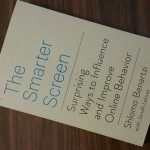Last night, I decided to install Telegram on my phone. An over-the-top messaging application similar to Viber and WhatsApp. It was the easiest way in my mind to get rid of messages bombardment from thousands of people who have my phone number. People who believe having someone’s phone number gives them permission or privilege to text him or her whenever they wish.
I was full of hope and happiness. a little more privacy can make life sweeter and enjoyable. But my hope turned into despair just after a few minutes.
I received more than 100 welcome messages from people in my contact list just in 10 minutes. Then I learned that telegram informs everyone else that you have joined the network and even offers them to send you a welcome message.
Can I consider it a privacy infringement case? I don’t think so. Telegram has not announced my phone number in public TV or on outdoor billboards. This application has looked for the persons who already have my phone number and just informed them that I’ve also joined the network now.
Even without telegram message, everyone could be able to know whether I am on this network or not. It costs a few seconds of time to send me a message and check for delivery note.
This is not limited to Telegram. Similar cases happen with Viber and WhatsApp applications. WhatsApp encourages you to pull the curtains and receive more information from the others in return: If you give me permission to show your online status to the others, then I will tell you about real status of the others too! Or if you let me tell the others that you have read their messages, then I will tell you whether your recipient has read your message or not.
Seems kind of fair agreement. I can call it Mutual Information Disclosure Agreement or MIDA. But can we call every mutual and bidirectional agreement as a fair one? Can we call a duel game a fair agreement? As there’s a mutual agreement between parties and each one gave permission to the other one to kill him if he could?
Nowadays, privacy is a real concern for most of us. But it seems that the privacy concept is somehow limited to explicit information and not implicit information derived from our behavior.
If I hear that Google has sold the content of my mailbox to someone, sure I will file it as information abuse and privacy infringement. But what if google just makes it public that when I have checked my emails for the last time? I believe that most of us would not take the latter case as serious as the former case.
Facebook activity feed changes as fast as the closing credits scrolls at the end of a film. Instagram shows the behavior of the people you follow. Pages they have visited and photos they have liked. Even a very simple blog shows the last commentators.
Sure there are possibilities to limit this exposure. Although most of us don’t care so much and in many cases like WhatsApp taking any action to make your environment more private means a breach of MIDA. So you will also lose some of your privileges. Seems fair enough.
Besides all formal nice quotes and happy mission statements, digital applications and social networks are a business and not a charity. So they must have a feasible business plan.
Also in tight breath-taking competition between digital applications and service providers, there’s virtually no way to increase the price of the services or even hold them in future. Every digital service has to get cheaper or has to die in this zero marginal cost society.
But becoming cheaper or free, doesn’t mean that costs are vanished. It just means that there are other people or organizations who are ready to pay for the costs. As advertisers pay costs of the TV programs and we have privilege to watch them for free.
The same story holds true in the digital age. Amazon turns our behavior report into a valuable information. Facebook uses our behavior to customize advertisements for us. Everything seems fair. There’s no free lunch. I let you watch me and you give me money directly or indirectly by giving me permission to use your service for free. Just as a naked girl dances in front of the others in a peep show and gets paid for that. Whatever it is, it doesn’t seem as bitter as prostitution!
It’s not easy to define a clear border between your explicit information and implicit information derived from your behavior. By the way, it’s not always costly or dangerous to share your behavior with others. Sometimes it even helps providers to render a customized service for you. Although I have already mentioned possible dangers in some cases like google blindness.
Sure I am not against digital technology and social networks. Bitter or sweet, it’s a fact that every advantage has a price to be paid. But it makes me worried that in my current point of view, the behavior of the users can never absolutely considered as private. Because behavior monitoring and even reporting is the core element of most online business models and the basic building block of gamification: the inevitable powerful technic behind most applications in the digital age.
Shall we omit the word privacy from our dictionaries within ten or twenty years? Will it be limited to bed activities? I am even more pessimistic. Sooner or later, apple will promote an application for its famous smartwatch which suggests you the best time for intercourse based on your tossing and turnings in the bed!
Let’s wait and see.





